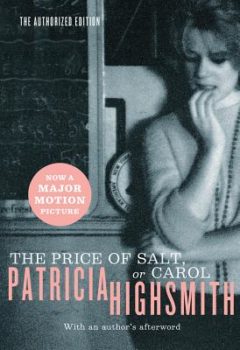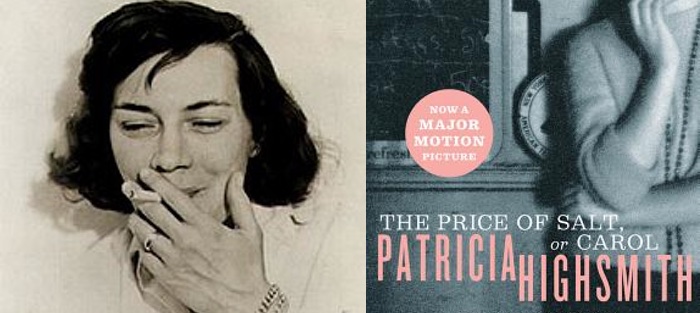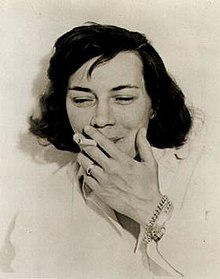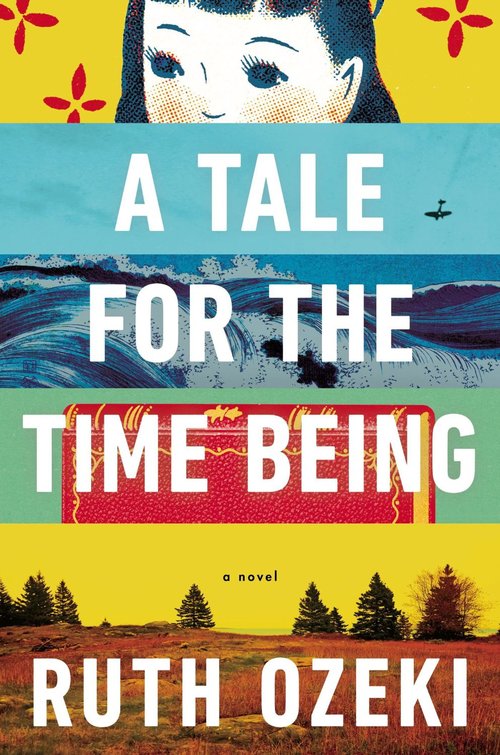Fiction writers agonize about using le mot juste, and we also strive for finely honed sentences. But what of the paragraph? A power paragraph can serve as a story’s fuse box, sending softly glowing, undulating, or hissing-hot power to different parts and levels of a story. This power paragraph can also serve as a hinge in the middle of a novel, as it does in Patricia Highsmith’s 1952 novel The Price of Salt, looking forward and backward, to the future and the past, like Janus (Chronos), the two-faced Roman god of gates, transitions, and dualities. Engaging with the idea of a power paragraph can help to focus one’s writing at an initial stage, or serve as a keystone in a work that is closer to being finished.
It reminds me of the list on the first page of Julian Barnes’ The Sense of an Ending: a list of narrator Tony’s memories, not in order, and each line has a corresponding connection to a scene in the novel. It’s engaging to track the list and the resurfacings of its references, but I found that The Price of Salt’s paragraph presents further layers of complexity, and so I enjoy and respect it even more.
The Price of Salt has twenty-three chapters. Only one, Chapter 12, begins with an almost elegiac, lyrical paragraph. The rest of the chapters begin with scenes. Why is Chapter 12 different? It’s almost smack dab in the middle of the novel, which might explain Highsmith’s choice to pull back from plot-driven chapter beginnings that move the story forward. Within the architecture of the book, it’s like a hinge, a pivot point. On one side of the paragraph, nineteen-year-old Therese, who knows next to nothing about queer desire, bumbles into an infatuated state with Carol, a woman in her thirties who is quite conscious of her own same-sex affinities. They each have heterosexual attachments; Therese has an ardent boyfriend she doesn’t love, Richard, and Carol is in the midst of a divorce from her husband, Harge.
The first time I read the paragraph that follows, I merely highlighted it and wrote “swoon.” But when I returned to it, I found that it’s also very hard-working.
January.
It was all things. And it was one thing, like a solid door. Its cold sealed the city in a gray capsule. January was moments, and January was a year. January rained the moments down, and froze them in her memory: the woman she saw peering anxiously by the light of a match at the names in a dark doorway, the man who scribbled a message and handed it to his friend before they parted on the sidewalk, the man who ran a block for a bus and caught it. Every human action seemed to yield a magic. January was a two-faced month, jangling like jester’s bells, crackling like snow crust, pure as any beginning, grim as an old man, mysteriously familiar yet unknown, like a word one can almost but not quite define.
Chapter 12 is significant as this is the chapter in which Therese’s boyfriend Richard realizes that Carol is a threat to his relationship. Therese has been able to spend time with Carol right under his nose, because it doesn’t cross his mind that they would be more than friends. This presumed heterosexuality is both a blessing for the women—because it allows them the opportunity to develop their relationship in plain sight—and is also a curse, in that it’s an indication of how freakishly the truth of their feelings would be deemed by society at that time.
Within the paragraph, Highsmith uses dualities and paradox to illuminate the tensions around the loyalties and desires inherent in the dynamics between Carol, Therese, and Richard. She also characterizes New York City in January; shows how a character’s emotions can leak into a description of setting and vice versa; generates strategic effects from the placement and structure of the paragraph; and plants phrases that are later expanded upon in the chapter and the book.
 The phrase “January was a two-faced month” alludes to Janus, and also invited me to identify dualities within the paragraph. The first duality is also a paradox. “It was all things. And it was one thing, like a solid door.” This insistence on a refusal to define something in a limiting way forms a parallel with Therese’s resistance to allowing Richard to pin down her feelings for Carol when Richard’s dawning understanding leads him to put Therese on the spot about exactly what she feels for Carol (although she refuses to cooperate). He says, “You’d rather see her than me, wouldn’t you?” and instead of answering the question, she says, “You might have mentioned the concert this morning, reminded me at least.” He continues to press her to define the relationship. “What is this, Terry?” Instead of answering truthfully, she responds with another question. “What’s what?” Because of the widespread censure of homosexuality at the time, there’s an inherent risk involved in Therese being transparent about her feelings, but on top of that, she’s still figuring out what exactly she feels.
The phrase “January was a two-faced month” alludes to Janus, and also invited me to identify dualities within the paragraph. The first duality is also a paradox. “It was all things. And it was one thing, like a solid door.” This insistence on a refusal to define something in a limiting way forms a parallel with Therese’s resistance to allowing Richard to pin down her feelings for Carol when Richard’s dawning understanding leads him to put Therese on the spot about exactly what she feels for Carol (although she refuses to cooperate). He says, “You’d rather see her than me, wouldn’t you?” and instead of answering the question, she says, “You might have mentioned the concert this morning, reminded me at least.” He continues to press her to define the relationship. “What is this, Terry?” Instead of answering truthfully, she responds with another question. “What’s what?” Because of the widespread censure of homosexuality at the time, there’s an inherent risk involved in Therese being transparent about her feelings, but on top of that, she’s still figuring out what exactly she feels.
Other pairs of paradoxes include “January was moments, and January was a year” and “mysteriously familiar yet unknown.” Less diametrically opposed pairs are “jangling like jester’s bells, crackling like snow crust, pure as any beginning, grim as an old man.” Jangling and crackling engage the sense of hearing, whereas pure and grim assign to January human qualities. Outside of the paragraph’s connections to the thematic substructure of the novel, these pairs evoke a pleasingly accurate sense of place and time of year, with not just New York City as a character in the book (which it is), but January in New York as a character as well. January is usually endured by its denizens without any “I Like New York in June” corollaries, but Therese’s emotional responses to Carol infuse her experience of January and fuse it with her inner and outer conflicts. It reminds me of Charlie Baxter’s lecture, “What We Talk about When We Talk about Horror” on how going through an intense emotional experience can “stain” a person’s memories of time spent in a place, when the character’s mood or state of mind, and the setting, leak back and forth into each other.
This leaking is emblematized by “January rained the moments down, and froze them in her memory: the woman she saw peering anxiously by the light of a match at the names in a dark doorway, the man who scribbled a message and handed it to his friend before they parted on the sidewalk, the man who ran a block for a bus and caught it. Every human action seemed to yield a magic.” Highsmith lists three examples of urban humans doing urban human things that would normally seem quite banal, if noticed at all, but she is far more observant than usual because falling in love with Carol has put her into a state of heightened awareness. Additionally, her limerence lens transforms these details of humanity into “magic.” (I also love the indefinite article usage, “a magic,” which describes magic, usually a big, broad category, as something that comes in cute, little, individual doses.)
I’ve mainly been discussing the internal workings of the paragraph, but now I want to illuminate how tentacles from the paragraph reach out into its chapter as well as, in two directions, the whole book.
In the paragraph, there are pairs (the paradoxes and/or dualities) in the beginning and end of the paragraph that bracket the set of three moments in the middle. Just as the chapter within the novel is roughly a midpoint hinge, the paragraph has a hinge in its middle, of a set of three with symmetrical groups of pairs. This can be seen as a foreshadowing of the dynamics of the characters in the chapter, in which Carol, Therese, and Richard spend time together on a cold winter’s day in Manhattan, walking through Central Park and having coffee at Rumpelmayer’s. At the restaurant, they run into Carol’s husband Harge. When Carol excuses herself to speak with Harge, the love triangle briefly becomes two dyads before Carol returns to their table. This sets up foreshadowing for the umbrage that both men express as they become conscious of what’s going on with Carol and Therese. Richard’s response is bitchy and bitter, but doesn’t hurt Therese or have consequences; Harge aims to get revenge by depriving Carol of custody of their daughter Rindy on the grounds that she is not just gay, but in a same-sex relationship.
Symmetry comes up again when Carol writes to Therese much later in the book, after her custody court appearance, she shares her own explanation of how gay relationships are different than heterosexual relationships: “that the rapport between two men or two women can be absolute and perfect, as it can never be between man and woman, and perhaps some people want just this, as others want that more shifting and uncertain thing that happens between men and women.” As much as I wish what Carol was saying were true (her claim is idealistic; relationships are intrinsically challenging, although lesbian relationships have fewer patriarchy-stemming conflicts), it does evoke the idea of symmetry in relationships between two people of the same sex, as compared to the “shifting and uncertain” nature of heterosexual relationships that comes from having less in common on a really basic level—socialization, societal roles and expectations, hormone levels, and body parts.
Lines from the first paragraph are echoed within the chapter. “Its cold sealed the city in a gray capsule” is echoed later when the three are walking in Central Park. “The air was cold and still, a little overcast, and Therese felt a motionlessness about everything, a lifeless stillness even in their slowly moving figures.” This pall is caused by Richard’s presence, and how much she is sacrificing by including him. The words “lifeless stillness” connects to Therese’s extreme response to the thought that she might not be able to spend time alone with Carol later that evening. “If Carol had to go home now, Therese thought, she would do something violent. Like jump off the Fifty-ninth Street Bridge. Or take the three benzedrine tablets Richard had given her last week.” Just under the gray, cold surface, there’s a lot of passion in this scene.
Another phrase from the first paragraph that describes “two-faced” January as “mysteriously familiar yet unknown” resurfaces when Therese recognizes that Harge is seated at another table at Rumpelmayer’s. “She looked at the thin, middle-aged woman he spoke to, and back at him, wondering if the aura of familiarity about him were real or an illusion like the mirror, until a memory fragile as a bubble swam upward in her consciousness and burst at the surface. It was Harge.” It’s interesting that Highsmith describes Therese’s associations of Harge in terms of “real or an illusion,” when her pretense of being “just friends” with Carol is an illusion, and his pretense of politeness toward Therese in his former home and in the restaurant is also an illusion. Therese’s feelings for Carol also fall into the category “mysteriously familiar yet unknown,” given that she hasn’t ever truly been in love before, not to mention in love with a woman, and yet she recognizes a very delicious, potent response to Carol inside herself.
The paragraph’s phrase “January rained the moments down, and froze them in her memory” alludes to Therese’s enhanced powers of perception, as I mentioned earlier, but they also describe the way Therese cherishes moments of time she spends with Carol, in that early phase of a relationship before two people spend so much time together that the moments get lost in the larger fabric of a shared life (kind of like the category of magic vs. discrete magics). In Chapter 13, Carol’s disposition is characterized in terms of moments as well. “And at best, even doing the right thing, she could not make Carol happy as Carol made her happy, she thought as she had thought a hundred times before. Carol was happy only at moments here and there, moments that Therese caught and kept.” This scene, which is about Carol’s displeasure that Therese was honest to Richard about her feelings for Carol, shows a gap between what Carol is feeling and what Therese understands. Carol is worried that it will hurt her custody battle but doesn’t come right out and say that. She just tells Therese that she should have lied to Richard. This is a foreshadowing of how further lack of discretion will hurt Carol, as when Therese leaves a love letter in Carol’s guest room, inside a book, and it’s used by Harge as evidence. It’s not so much that Carol is only happy for a moment here and there, but that she’s going through an ugly custody battle and her feelings for Therese are complicated by situational anxiety, fear, and sadness.
Highsmith shows that one paragraph can be so generative—an Advent Calendar, a Trojan horse, a hinge, a star. It’s pleasantly enervating to notice how much work one paragraph can do while also being so beautifully written. Any fiction writer devoted to craft will likely be tempted to venture something similar.




